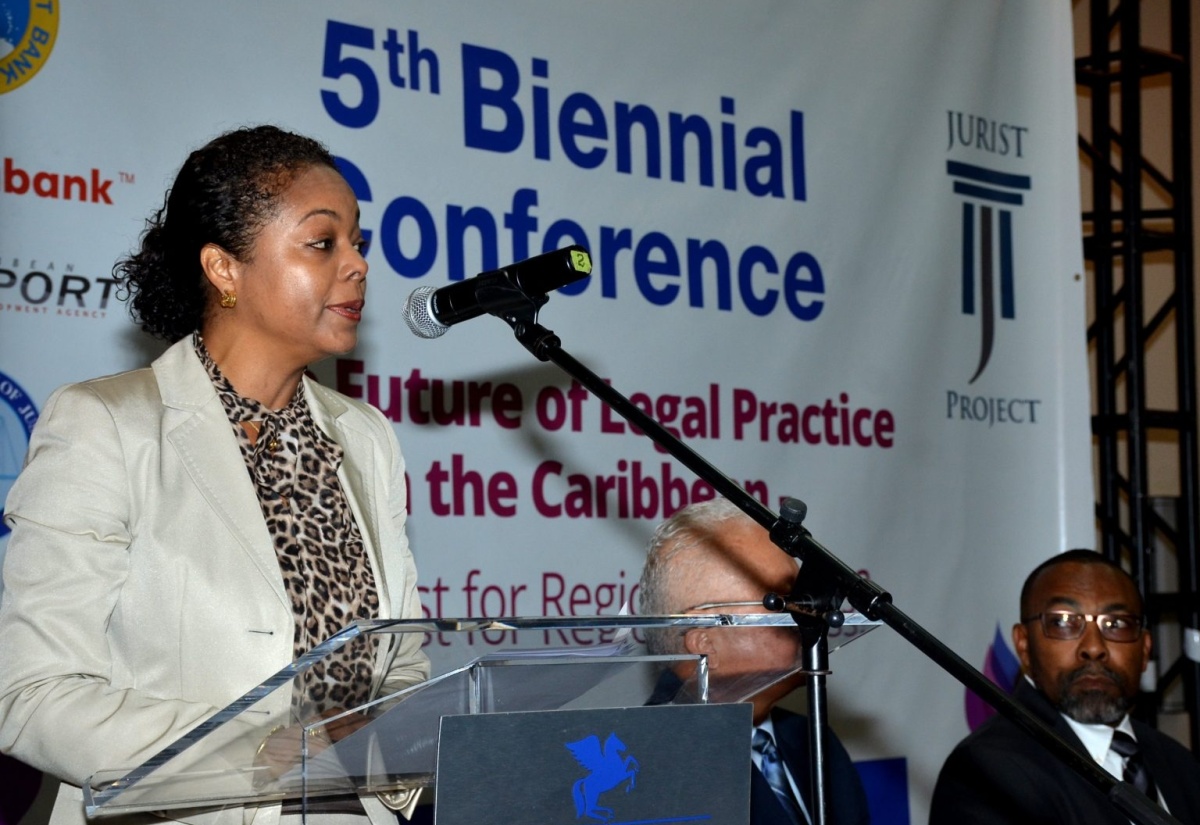CCJ Critical Aspect of Regional Integration Movement
By: , December 14, 2018The Key Point:
The Facts
- The court is the final authority on disputes concerning the interpretation and application of the Revised Treaty of Chaguaramas, which established the CSME.
- Mrs. Malahoo Forte was addressing the opening ceremony of the CCJ Academy of Law’s 5th Biennial Conference at The Jamaica Pegasus hotel, New Kingston, on December 13.
The Full Story
Attorney General, Marlene Malahoo Forte, says that the Caribbean Court of Justice (CCJ) is a critical component in the regional integration movement and the functioning of the CARICOM Single Market and Economy (CSME).
The court is the final authority on disputes concerning the interpretation and application of the Revised Treaty of Chaguaramas, which established the CSME.
Mrs. Malahoo Forte was addressing the opening ceremony of the CCJ Academy of Law’s 5th Biennial Conference at The Jamaica Pegasus hotel, New Kingston, on December 13.
She noted that the CCJ is the highest appellate body in CARICOM member states, which are parties to the agreement on its establishment, and in that regard, considers and determines appeals in both civil and criminal matters from the courts within those territories.
Some member states, including Jamaica, have not yet implemented the agreement establishing the CCJ as the final Court of Appeal.
The Attorney General pointed out that the establishment of the CSME was meant to be an impetus for deepening the integration movement, to better respond to the challenges and opportunities presented by globalisation.
She said that the Revised Treaty provides the legal basis for CARICOM and sets out its objectives, its structures and key areas of endeavour, while also providing for the decision-making authority of the organs and bodies of the community, whose decisions contribute to the development of community law and policy.
It also reinforces the main pillars of the community – economic integration, functional cooperation and foreign policy coordination.
“In 2005, the Conference of Heads of Government established security as the fourth pillar of the community coming out of the growing threat to citizen security and other regional assets and institutions,” Mrs. Malahoo Forte noted.
She noted that the objectives of the Revised Treaty outline the economic aspirations of regional integration.
“However, there is the view among many that these objectives need to be expanded to articulate more clearly, the desired human and environmental outcome of the community. As the community matures, it is anticipated that stronger mechanisms will exist for deeper dialogue, and I believe this conference is one such example,” she stated.
The Attorney General, in her address, called on CARICOM member states to implement all aspects of the free movement agenda, including the recently signed Protocol on Contingent Rights.
The protocol was adopted and opened for signature at the 39th Regular Meeting of the Conference of Heads of Government of the Caribbean Community held in Montego Bay from July 4 to 6.
It grants rights to CARICOM nationals exercising the right of establishment, provision of services, movement of capital or free movement of skills. Spouses and immediate dependants are also entitled to enjoy these rights.
The three-day CCJ Academy of Law conference, which concludes on December 15, involves partnership with the General Legal Council of Jamaica.
Others participating in the opening ceremony include Minister of Justice, Hon. Delroy Chuck; Chairman of the General Legal Council, Allan Wood; President of the Court of Appeal, Hon. Justice Dennis Morrison; and CCJ President, Justice Adrian Saunders.


